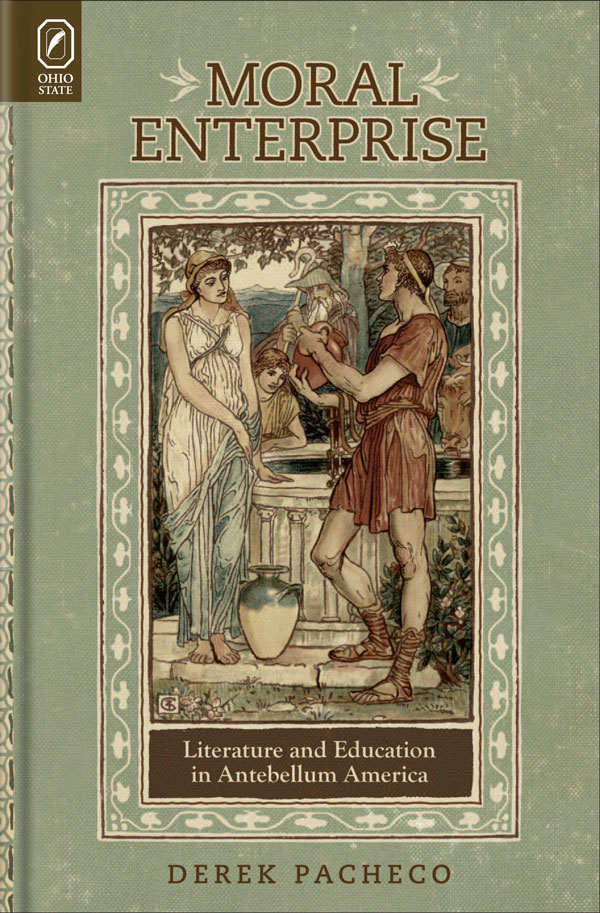Moral EnterpriseLiterature and Education in Antebellum AmericaDerek Pacheco |
$27.95 paper 978-0-8142-5449-3 $60.95 cloth 978-0-8142-1238-7
| |||
|
Explore More The Transcendentalists, by Barbara L. Packer |
“Derek Pacheco’s scholarship is meticulous, and his writing is clear, concise, and jargon-free. Moral Enterprise fills a previously empty niche and invites further scholarship on the connections between pedagogy and Transcendentalism.” —Angela Sorby, associate professor of English, Marquette University “In Moral Enterprise, Derek Pacheco examines the development of literary culture in the antebellum United States from the vantage point of educational reform. Juxtaposing prominent authors in the literary canon—for example, Fuller and Hawthorne—with other, nonliterary figures, this book offers a series of case studies that, refreshingly, make the book more than the sum of its parts.” —Thomas Augst, associate professor of English, New York University Moral Enterprise: Literature and Education in Antebellum America, by Derek Pacheco, investigates an important moment in the history of professional authorship. Pacheco uses New England “literary reformers” Horace Mann, Nathaniel Hawthorne, Elizabeth Peabody, and Margaret Fuller to argue that writers came to see in educational reform, and the publication venues emerging in connection with it, a means to encourage popular authorship while validating literary work as a profession. Although today’s schools are staffed by systematically trained and institutionally sanctioned teachers, in the unregulated, decentralized world of antebellum America, literary men and women sought the financial stability of teaching while claiming it as moral grounds for the pursuit of greater literary fame. Examining the ethically redemptive and potentially lucrative definition of antebellum author as educator, this book traces the way these literary reformers aimed not merely at social reform through literature but also at the reform of literature itself by employing a wide array of practices—authoring, editing, publishing, and distributing printed texts—brought together under the aegis of modern, democratic education. Moral Enterprise identifies such endeavors by their dual valence as bold, reformist undertakings and economic ventures, exploring literary texts as educational commodities that might act as entry points into, and ways to tame, what Mann characterized as the “Alexandrian library” of American print culture.
| |||




 Derek Pacheco
Derek Pacheco